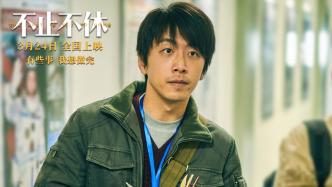
When he was in college, faced with the pressure of future employment competition, Bai Ke, who read a broadcasting and hosting book and wanted to be a football commentator, chose to be a reporter when he subdivided his major. He entered Yangzhou Radio Station as an intern in his junior year, and worked in the radio station for a period of time after graduation. This is the "workplace" that Bai Ke experienced before becoming an actor.
Many years later, Baike, who has embarked on the path of an actor, met his former reporter again in the movie "Not Ending". To "become" a reporter again, for Bai Ke, who has been acting for many years and often needs to mobilize his emotional emotions to the greatest extent, the difficulty is to always restrain his emotions in his heart.
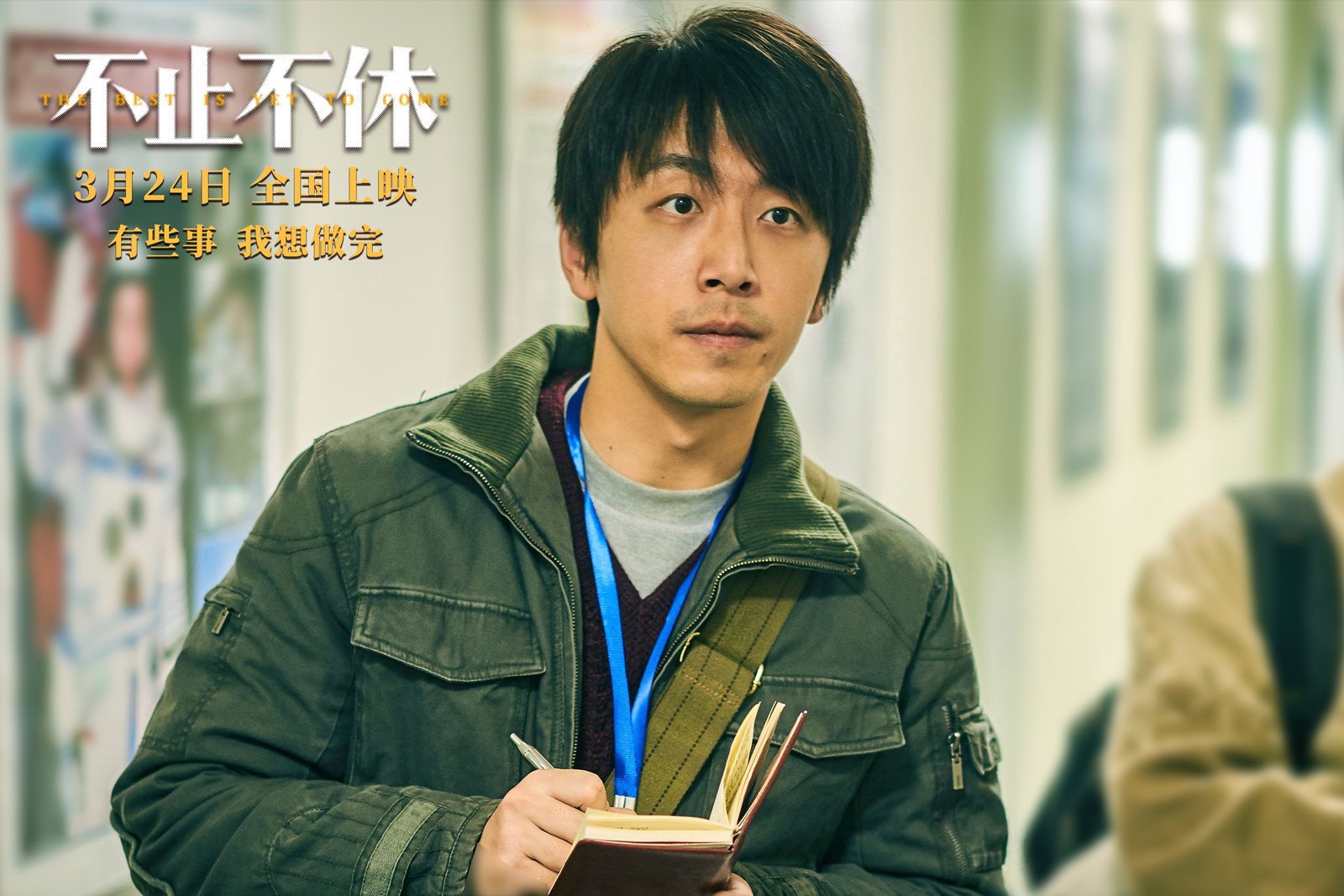
"Not Ending" Stills, Bai Ke as Han Dong
On March 24, 2023, the movie "Not Ending" directed by Wang Jing, supervised by Jia Zhangke, will be released nationwide. The film is set in China in 2003, where social changes are turbulent, and paper media is king. Han Dong (Bai Ke), a young North Drifter with journalism ideals, enters a newspaper as an intern with the help of senior investigative reporter Huang Jiang (Zhang Songwen). During a news investigation, Han Dong discovered that there was a bigger social problem behind the behavior of hepatitis B testing, and faced a choice between the reality of survival and the ideal of news.
Since 2020, the film has successively appeared in Venice, Toronto, Pingyao and other major film festivals and won awards. It has received constant praise and is highly anticipated by the audience. The film reproduces the social environment and media industry 20 years ago for the audience with a plain and restrained lens language. The form of traditional TV newsreels presents the silent plight of a large and silent group, and conveys the real image power to the audience.
When I first read the script and met Han Dong, Baike felt that it was too different from the scripts he had received before. The story of "too prominent style" made him fall in love at first sight. During the filming process, director Wang Jing found many real journalists of that era, constructed a very real world, and brought that era almost completely in front of actors and audiences. "Let you not think about acting at all, but live in this world as Han Dong and experience this story." So in the movie, Bai Ke has completely become Han Dong.
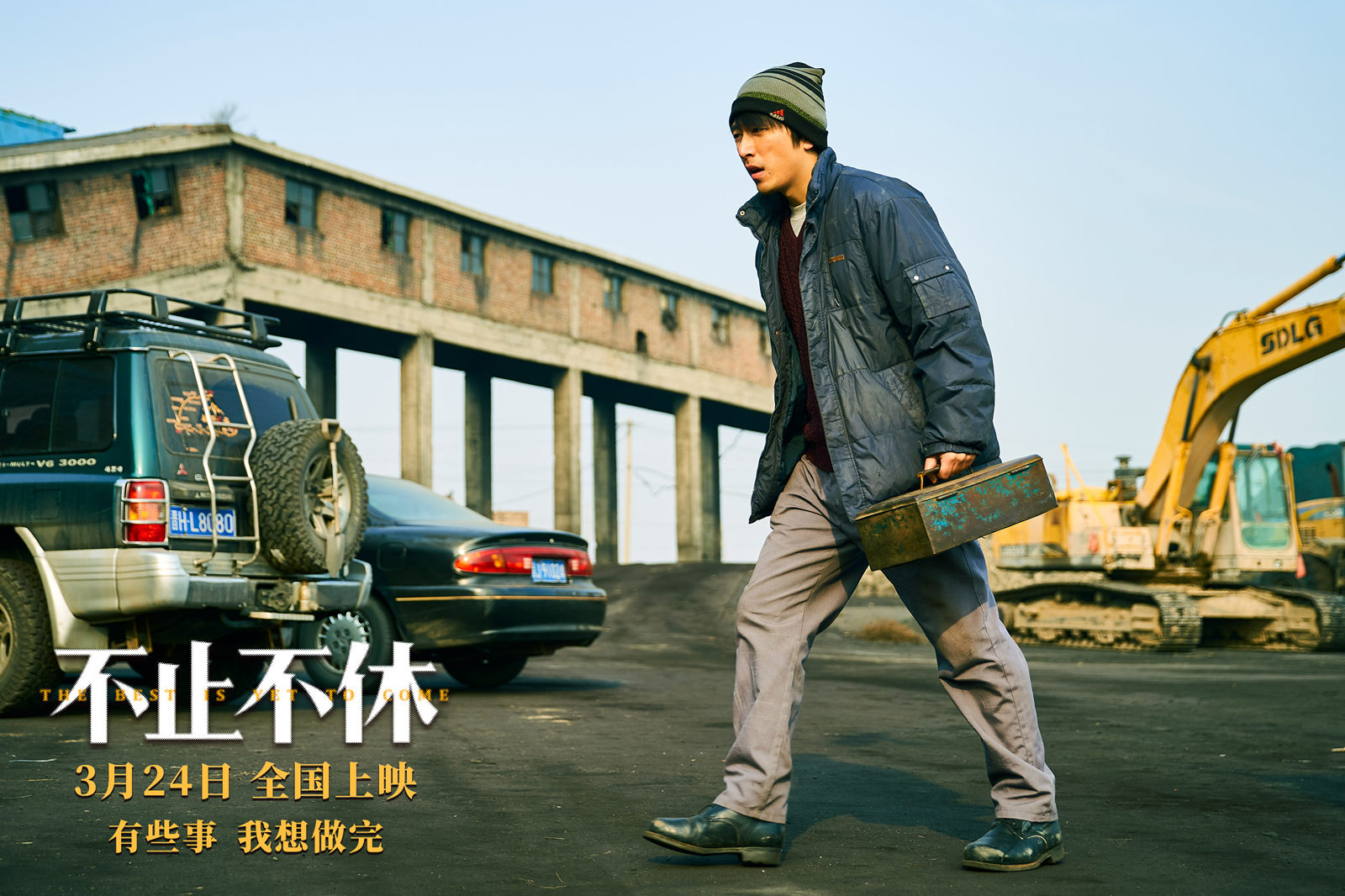
Stills of "Not Ending"
Han Dong is a hot-blooded "stunned young man", a fledgling young media person with unrelenting and endless idealism. He is also very ordinary. Because of the suppression of his academic qualifications, he gritted his teeth and persisted in the difficult environment of Beidiao. He would be at a loss in the face of the conflict between legal principles and human feelings, but in the end he had to be brave and realistic with a kind of egg hitting a stone but seeking to be worthy of his heart. A "head-on blow".
To play a good news reporter in the film, Baike needs to keep calm and restrain his emotions in his heart. There are a lot of documentary-style real materials in the film, but the director actually recorded the interview process of Bai Ke. Although his early internship and work experience in Taiwan made him more familiar with the whole filming, when "everyone is talking about their real life and real distress" and facing the true feelings of the interviewees, Baike is still caught. This strange emotional surge hit the heart.
Director Wang Jing chose Baike at the beginning because of his "ordinary"-Han Dong should be thrown in the crowd, and no one would notice his appearance. After actual contact, Baike is meticulous and serious, and even a "social fear" who doesn't want to talk too much. This contrast with his original impression of watching online dramas made him firmer in his judgment that Baike is a good actor .
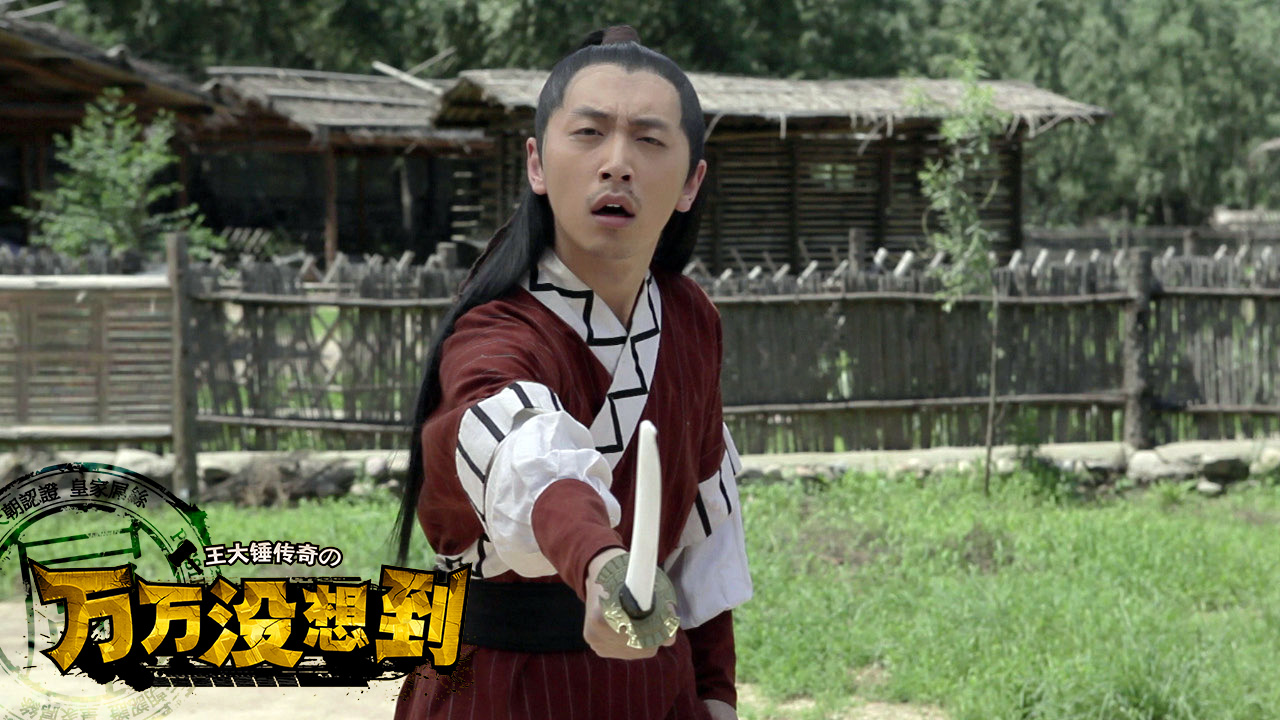
"Never Expected" Stills, Bai Ke as Wang Dahammer
The grassroots atmosphere of Baike's very "ordinary person" face was also the way for him to shape Wang Dahammer. After the "Wang Dahammer" who always seemed to have a "sluggish" and exaggerated expression in the web drama "Wan Wan Wan Wan Wan Fang" became popular, Bai Ke once wandered in the "comfort zone" of similar characters. In the big movie "Unexpectedly", "Havoc in Tianzhu" and "Mermaid", Baike continued to laugh in the movie, and the image of the comedian became more and more popular, and it was inevitable to be "tired".
In recent years, audiences have seen Baike, as a mature actor, showing more and more different faces. The violent and perverted villain pet doctor in "Door Lock"; The heart-warming reporter who illuminates women in the dark who also carry their own secrets; the professional but unkind director of the venomous tongue in "You Who Saved Ten Thousand Times"; ...Bai Ke's drama path is getting wider and wider. The ridicule of "becoming a general manager, being promoted to CEO, marrying Bai Fumei, and reaching the pinnacle of life" has gradually unfolded in another way to become richer and more three-dimensional.
On March 24, the movie "Unstoppable" starring Bai Ke was officially released nationwide. Before the film was released, Bai Ke accepted an exclusive interview with The Paper, talking about his media memories in and out of the play, as well as the "utility" and helplessness of the trick road getting wider and wider.
【dialogue】
With real people, I didn't think too much about "acting"
The Paper: The role of Han Dong is very different from your previous roles. What was your reaction when you first received it?
Bai Ke: Most of the time, I would receive some different types of scripts at the same time. Among the several scripts I received at that time, the script style of "Unstoppable" was too prominent. I have never received such a script. I had a preconceived feeling in my heart that I liked it very much, and then I slowly studied it carefully. When watching it, I don’t think I can’t handle this character, because it tells a character that I have in common, and it also tells an era that I have experienced, and it is not far away from me. After meeting with the director, we had a good chat, so I naturally accepted this drama. To be honest, there was no reason not to take this role at the time.
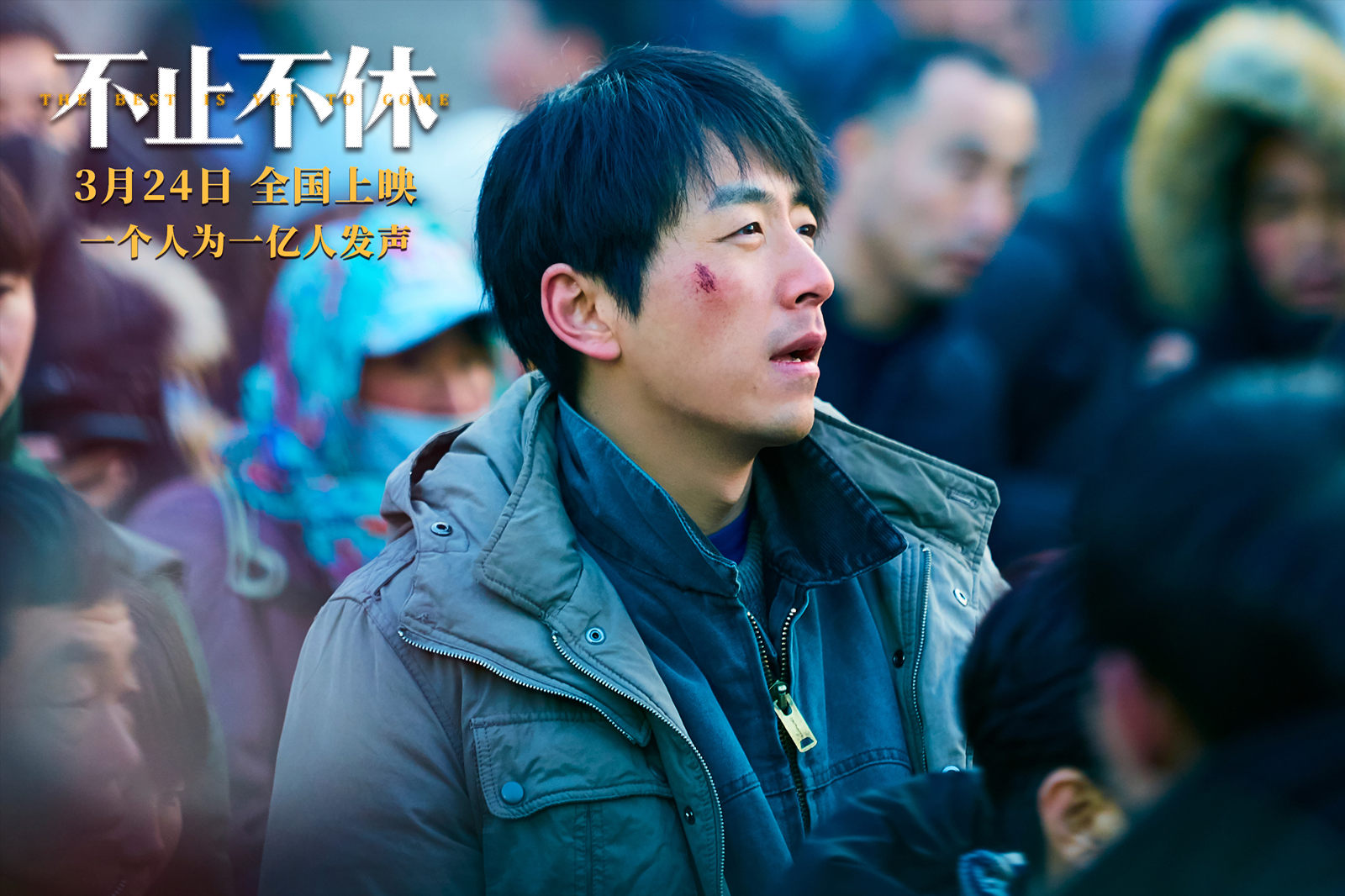
Stills of "Not Ending"
The Paper: When it comes to actual filming, what kind of feelings will such realistic themes bring?
Bai Ke: In the process of reading the script, you probably have some ideas about how to perform in your mind, and imagine what its presentation will look like. But what I can't believe is that the director constructed a very real world, almost restoring that era in front of you. There are so many real journalists, so many real people who have experienced that terrible experience on the set, and become people who live with you in that space, so that people don't think about acting at all. Instead, as Han Dong, he lived in this world completely to experience this story, and interpreted this story naturally. So this play really didn't think too much about "acting".
The Paper: The documentary-like images in the movie record the process of a reporter interviewing a hepatitis B carrier. How were they presented?
Bai Ke: There is no description of this passage in the script. The task given to me by the director is to ask me to interview them, just like filming a TV news program. Fortunately, I had an internship in Taiwan before. When I was in college, I studied the direction of appearance reporter, so this job is actually not difficult to complete. All the things learned in school are imperceptible. It is hard to say which course gave you the most help, but it is true that everything I learned was used in my later work.
But what I can’t help professionally, the most difficult thing to accomplish is that the whole film must restrain my emotions in my heart, but when I was interviewing, it was the most difficult moment for me to restrain my emotions, because you never I realized this situation during filming, when everyone is telling their true stories and their real distress, they will reveal their true feelings, and I will be infected accordingly. But if I can't restrain myself, I don't think the scene is right.
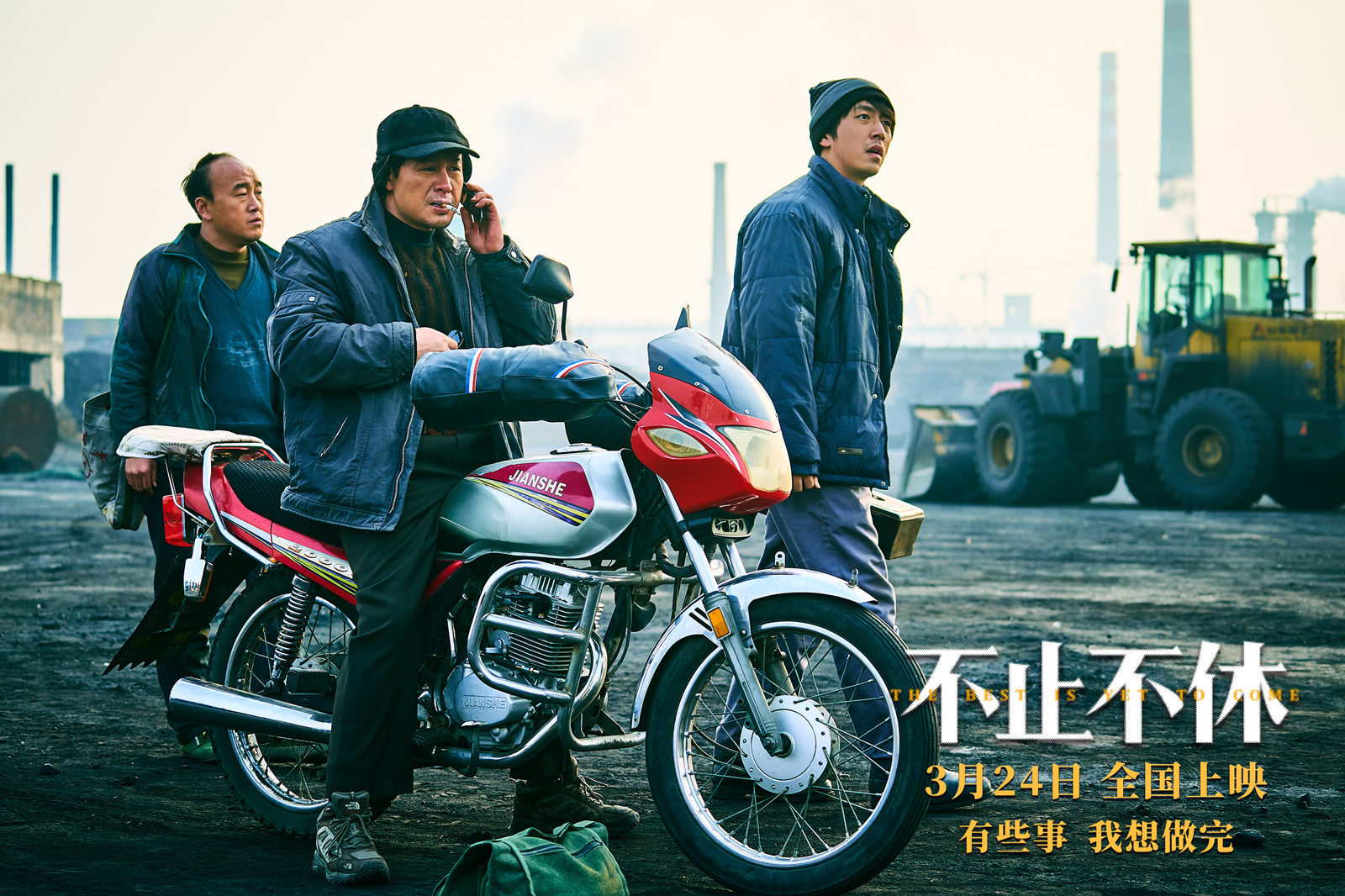
Stills of "Not Ending"
The Paper: Was the process of opening the hearts of these interviewees smooth? Is there any interviewee who particularly impressed you?
Bai Ke: In fact, if they are willing to participate in the performance, they have already mustered up the courage to open their hearts to us. I've met and talked to many people there. When filming, they will be given a hypothetical environment. Of course, they don’t need to worry about the environment, they just need to talk about their own experiences. Everyone will talk about the state when they have not opened their hearts, but at the moment of telling the story they have already opened.
It should be said that the experience of all of them cannot be easily accepted by me, because when you imagine other people's lives as a bystander, or you want to teach others what to do and what to do, I think it is all nonsense. Many of their thoughts are beyond your imagination, and the pressure is really on them. So when listening to them talk, it is really difficult to restrain emotions. For example, in the mother and child in the movie, the mother said that she had been discriminated against, but when she knew that her child was also a carrier of hepatitis B, she felt relieved. She felt that if she wanted to live a good life, her children should also live a strong life. She also said in the film that she hopes society can accept us as a group like I accept my son.
Dreamed of being a sports commentator, but failed to submit resumes to traditional media
The Paper: Did the filming evoke any nostalgia for the traditional media memories of the past?
Baike: Indeed. Because at that time, the news and investigative programs broadcast by TV stations were very popular. At that time, in addition to "Hundreds of Lectures", "Today's Statement" was a must-watch every day in school, and there was "News Investigation" every week. Because they are very sharp, I feel that they have done something that you dare not think of. You will feel that these people are very brave and very powerful. Everyone feels this way, and I think that other actors in my age group will feel the same way.
The Paper: Another very important medium in the movie is the forum, which actually carries a lot of our memories. Your early works are full of "Internet sense", I think you should also be a person who can go to the forum, right?
Baike: Of course, playing forums, it is difficult for you not to be affected by that era in your life. BBS started to become very popular when I was in middle school. I have been involved in quite a few forums, including sports, entertainment, and some like Xici. ).
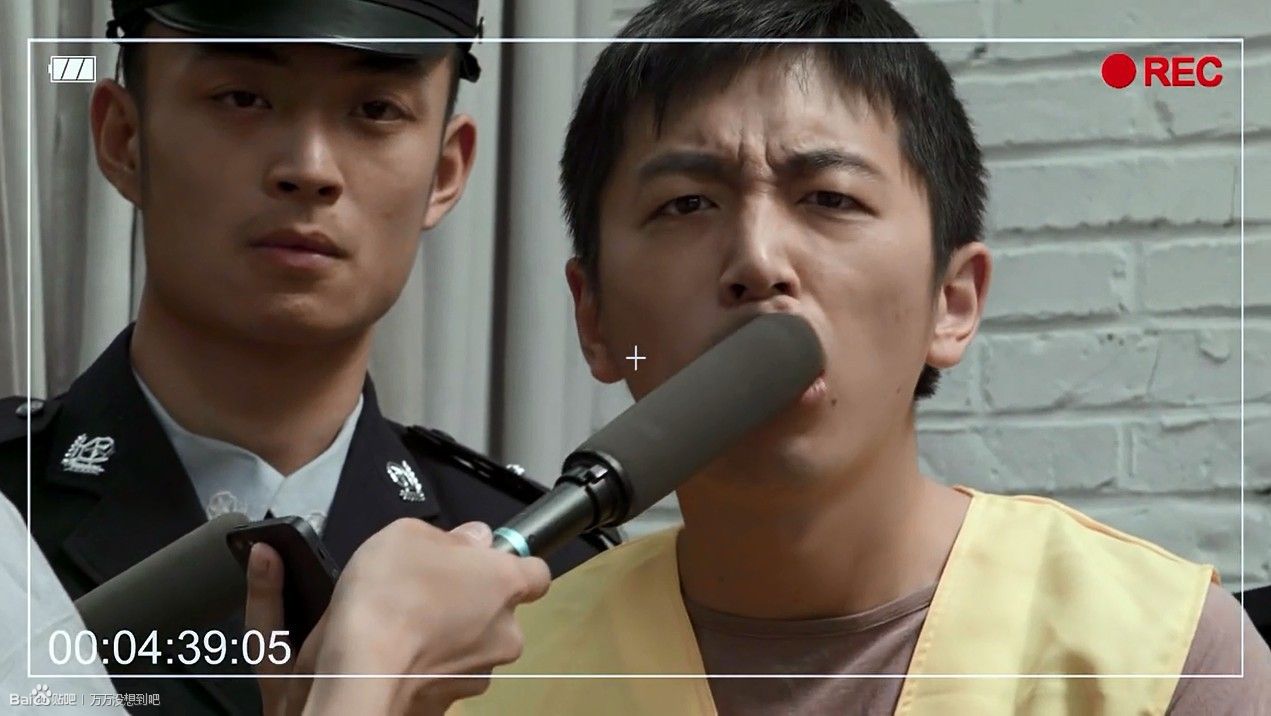
Stills of "Unexpectedly"
The Paper: What sector is the "Modeled Bamboo"?
Baike: It’s a sports section, but it’s an artist’s fan forum. I was young at the time, and I also had favorite artists. At that time, the forums were like this, everything would be hodgepodge into one forum. For example, if there are any download areas, irrigation areas, discussion areas, and any games and sports, they may be set up. What kind of post bar was there at that time, the school post bar, my brother and I were the managers of our school post bar. This was all a long time ago before going to college.
The Paper: You majored in broadcasting and hosting, and you chose to be an on-camera reporter. What do you know about this profession? Did you ever think about becoming a journalist after graduation?
Bai Ke: I chose to be a reporter at the time, which was a helpless and "utilitarian" choice. Because you know that the employment pressure was also very high at that time, and there were a lot of art candidates, and they would face many competitors when they graduated. At that time, there were not so many self-media and new media platforms, so we could only squeeze into traditional media. I wanted to learn sports commentary at first, but we didn't have a teacher, so I chose a major that would allow me to "get a foothold" during my internship in Taili. If you go to Taili for an internship, there is a high probability that you will get such an opportunity, and you will have a greater chance to stay, so this is a more "utilitarian" choice. According to the situation at the time, I had too few choices, and all the resumes I submitted to traditional media were lost. Only I was an intern at Yangzhou Radio Station in my junior year, and the leaders there also appreciated me very much, so I naturally stayed there after graduating from my senior year. If you insist on what you want according to your "initial heart", that is to submit resumes to various sports channels but there is no news.
The Paper: Having been an actor for so many years, I have received many interviews. What do you think is the difference between these two interviews?
Baike: Not the same. These are two news directions. I do interviews for entertainment news. They will ask me about my current situation, what I think, and my views on career and performance. I can talk about my personal experience and You can choose not to say it, or you can make it up. But when I come to interview them, they can only tell their real life. Because they can't act and have nothing to lie to you, they are genuinely distressed.
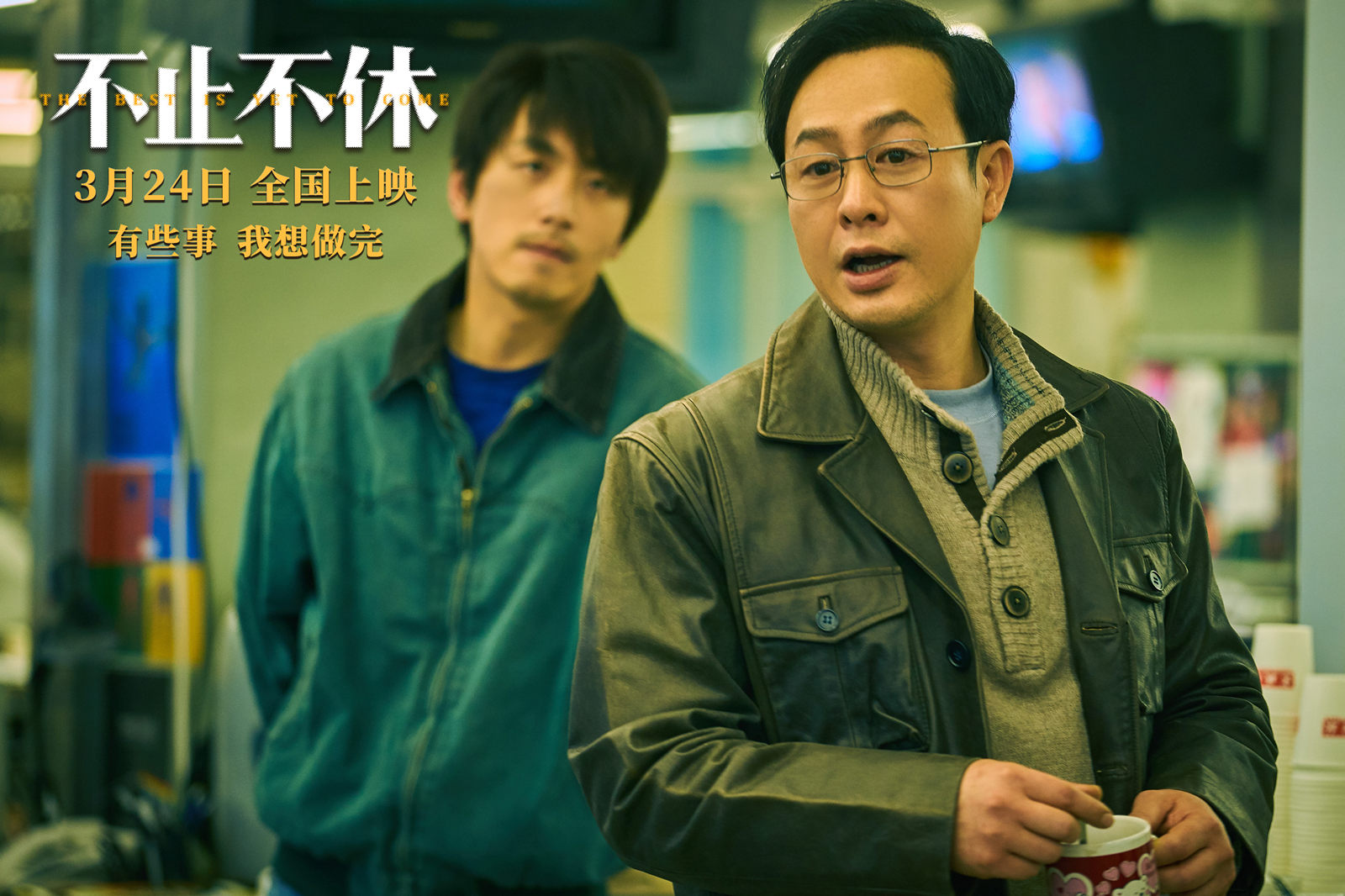
"Not Ending" stills, Zhang Songwen (right) as Huang Jiang
The Paper: The most intense conflict in the movie is that Han Dong wanted to withdraw the manuscript, but Huang Jiang refused. In fact, no matter whether he withdraws or not, other newspapers will expose this matter. How do you understand Han Dong's decision to withdraw the manuscript at such a high price?
Baike: Whether to continue to publish or to withdraw the article will be reported by other newspapers. There is a fundamental difference between the two matters, which lies in whether you are the one who is behind the matter. Han Dong wants to rewrite this article, he wants to change the angle, that's what he really thinks in his heart. So the difference is still very big, for example, several people beat one person, right? Others are fighting, but I don't want to fight. He is my friend. Whether I fight or not, he will be injured, but I really don't fight. There is a fundamental difference. Because Han Dong is a person with feelings, and Zhang Bo is his very good friend, and he was not an official employee of the newspaper or a qualified reporter at that time, he had reason to make this decision impulsively.
The Paper: In the movie, Mr. Zhang Songwen played Huang Jiang as a senior who had a great influence on Han Dong. It can be said that he is Bole, but at the same time they also have fierce conflicts of ideas. Have you ever met Huang Jiang who treats you like Huang Jiang in your career? A senior with a deep influence? Have you ever been disapproved?
Bai Ke: When I was working in Yangzhou TV, the leader treated me very well. I was sorry when I resigned, but with my mentality at the time, I felt that I should go to a big city and not live comfortably in one place. You know, as a college graduate, if someone in the station thinks highly of you, it will make you confident and capable. So even though you can't meet each other, you must thank those leaders who have appreciated you.
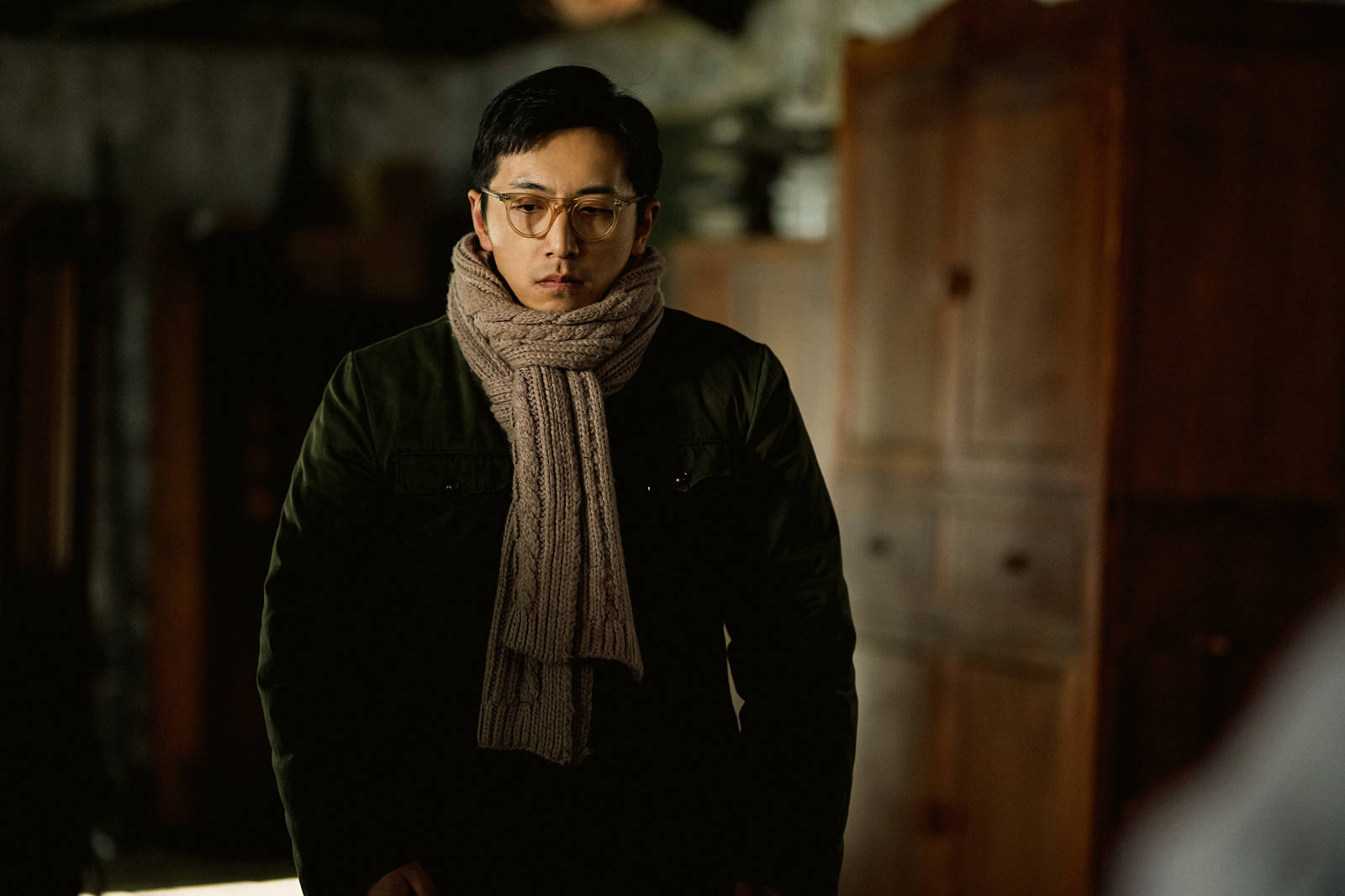
Bai Ke plays Bai Mulin in "The Three-Body Problem"
After coming to Beijing, the group of friends I met in this company have been together for more than ten years and have been sharing. They are all walking together and doing a good job. So everyone really supported each other, found each other's shining point, and slowly got to this point, we must all be our own benefactors.
In terms of influence, I have only been in the media industry for a short time, but in the performance industry, the experience of facing conflicts is common, because everyone has different performance concepts, especially in comedy, there will be various Style, everyone's understanding of comedy is completely different. But acting is not like news, no one needs to persuade anyone. It is right that the performance styles are different. Everyone needs to exist at the same time to make this industry colorful. No need to say who is right and who is wrong. So the producer is very powerful, able to form an army, and at the same time, the director guides different people to fight a battle. So in our performance industry, I don’t think anyone needs to persuade anyone. Different opinions have a positive effect on promoting this industry.
Inadvertently "widening the boundaries" in order to keep things fresh
The Paper: News and movies sometimes do the same thing, to see some people who are not seen, and to express the views of some creators. Do you consider yourself an expressive person?
Bai Ke: I am a very quiet and talkative person. I don't like to output my opinions as much as Han Dong, but if I have to communicate with my friends more or less, I will have some troubles. Sometimes you have an idea that seems strange to others, but you dare not say it, and it is very uncomfortable to hold it in your heart. When we do comedy, it becomes more difficult to express, because sometimes the other party may feel that I am offending, so what about "insulting" myself? It will also be considered "not self-respecting", which will make this expression really very difficult. So whether it is the era in the movie or the present, it is very brave to express at any time. Of course, the country also needs to do a good job of guiding it, but this issue will always exist, and there is no need to feel pessimistic, because the right to express has always been given to us.
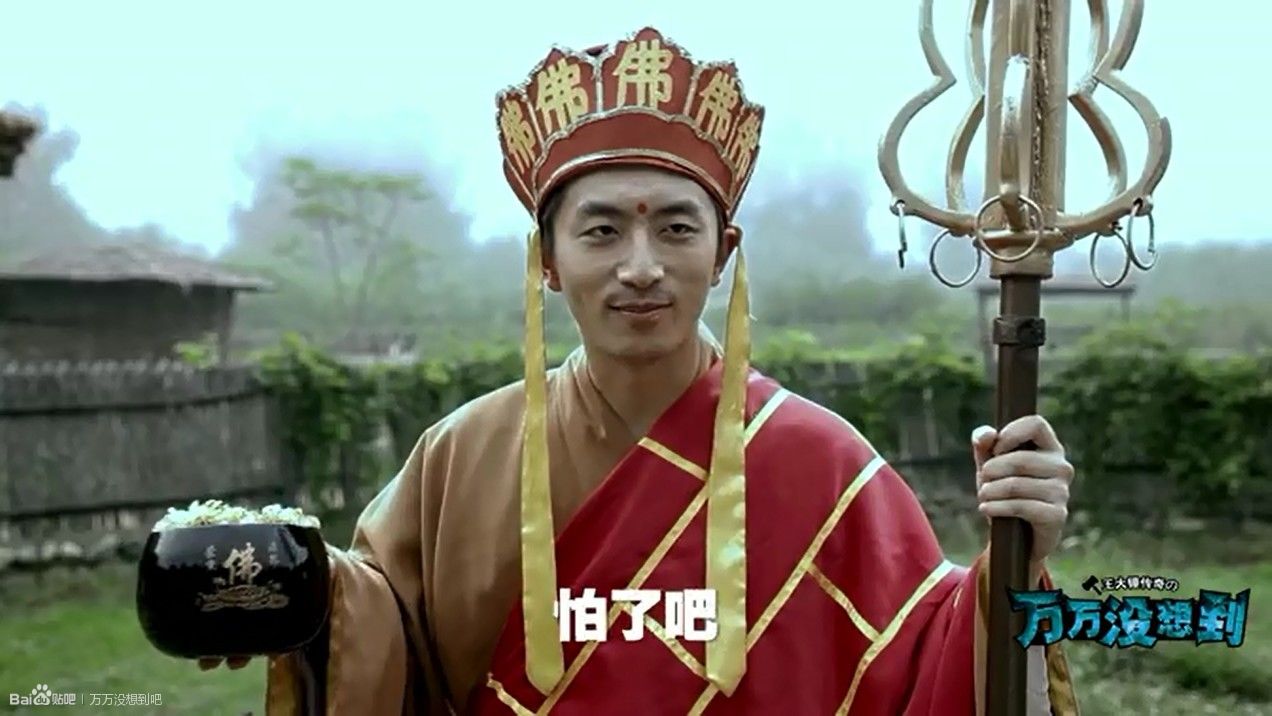
Stills of "Unexpectedly"

Bai Ke plays Tang Sen in "Havoc in Tianzhu"
The Paper: The expression of comedy will be subject to many restrictions. Does it have anything to do with the fact that you are acting less comedies now?
Bai Ke: It is indeed somewhat related, because I think if I make some basic boring jokes, it will be boring. Comedy is meant to be satirical. I always have to write something, but maybe it will upset some people, and then maybe someone else will give you some value and tell you how wrong you are. I'm just a small creator who wants to prick this position with a small needle.
The Paper: In the movie, Han Dong is a very passionate idealist. Does playing such a character inspire you in some way?
Bai Ke: From a professional point of view, he gave me a chance to act in a different type of film. I will not always act in one or two films, but will develop my own way of acting. In terms of cause and effect, I agree with the director's expression in the script, so I entered this play. We were friends with each other before the filming, not that he dragged me in, I was infected again after filming this scene, that's not the case. I believed from the beginning that I could help his interpretation.
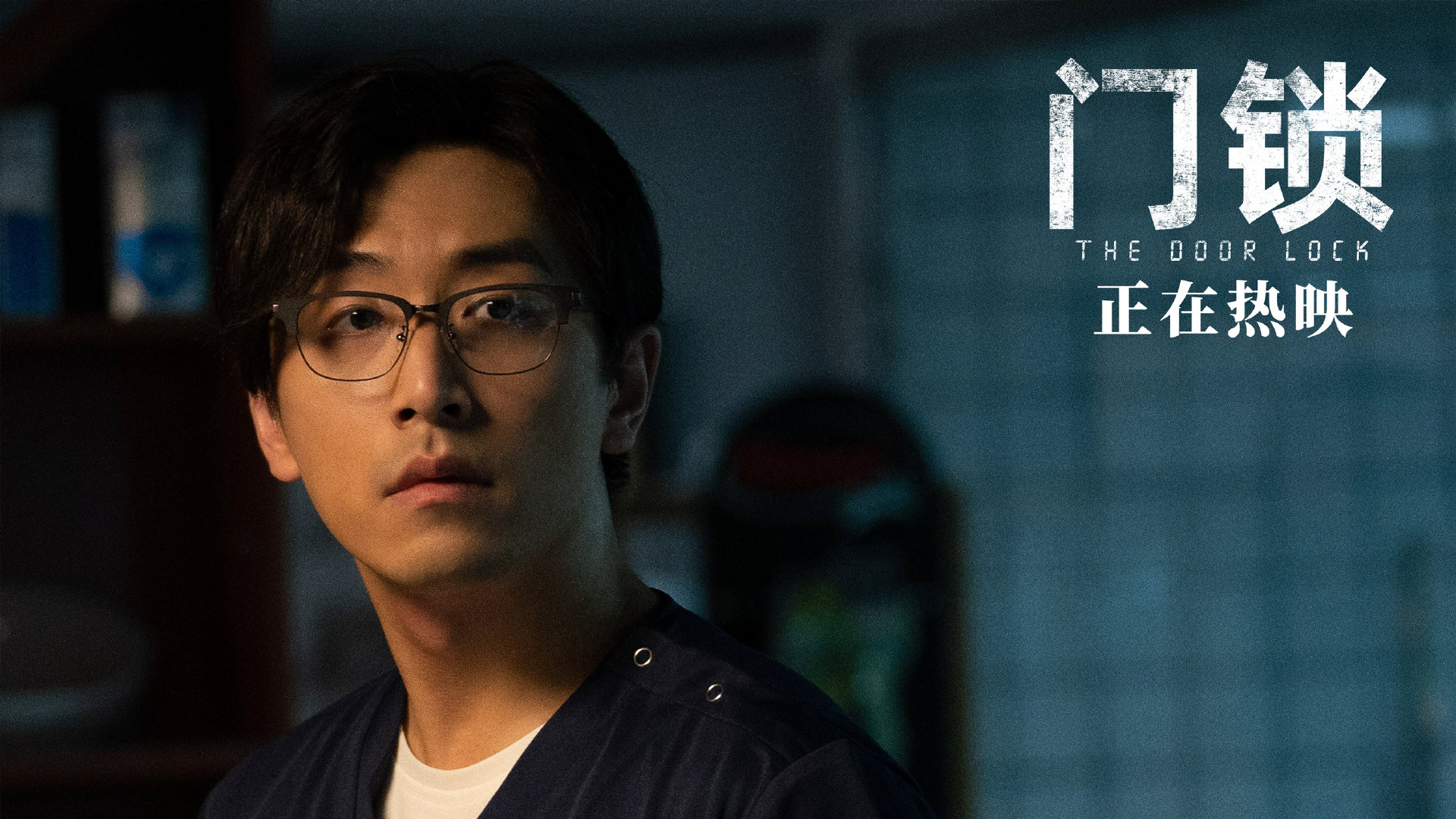
Bai Ke plays Zheng Fei in "Door Lock"
The Paper: Over the years, we have seen that your roles have become more and more diverse. Since when did you feel that you have become more ambitious as an actor and want to broaden your boundaries?
Baike: Broadening the boundaries is actually a relatively "utilitarian" idea. Not widening boundaries for the sake of widening boundaries, or widening boundaries for the sake of being recognized by others. Because doing the same job all the time will make the work very boring. In order to keep it fresh and make my work colorful, I will take on different kinds of plays when I have the opportunity. Only in this way will it be fun, and as a result, you may unintentionally broaden your boundaries, causing you to act in more things. And it is precisely because the work has become more and more abundant, which may give you the confidence to take root in this industry for a longer time. If you act in a certain kind of thing, you will get tired of it after a long time. After all, I didn't like acting that much at the beginning.
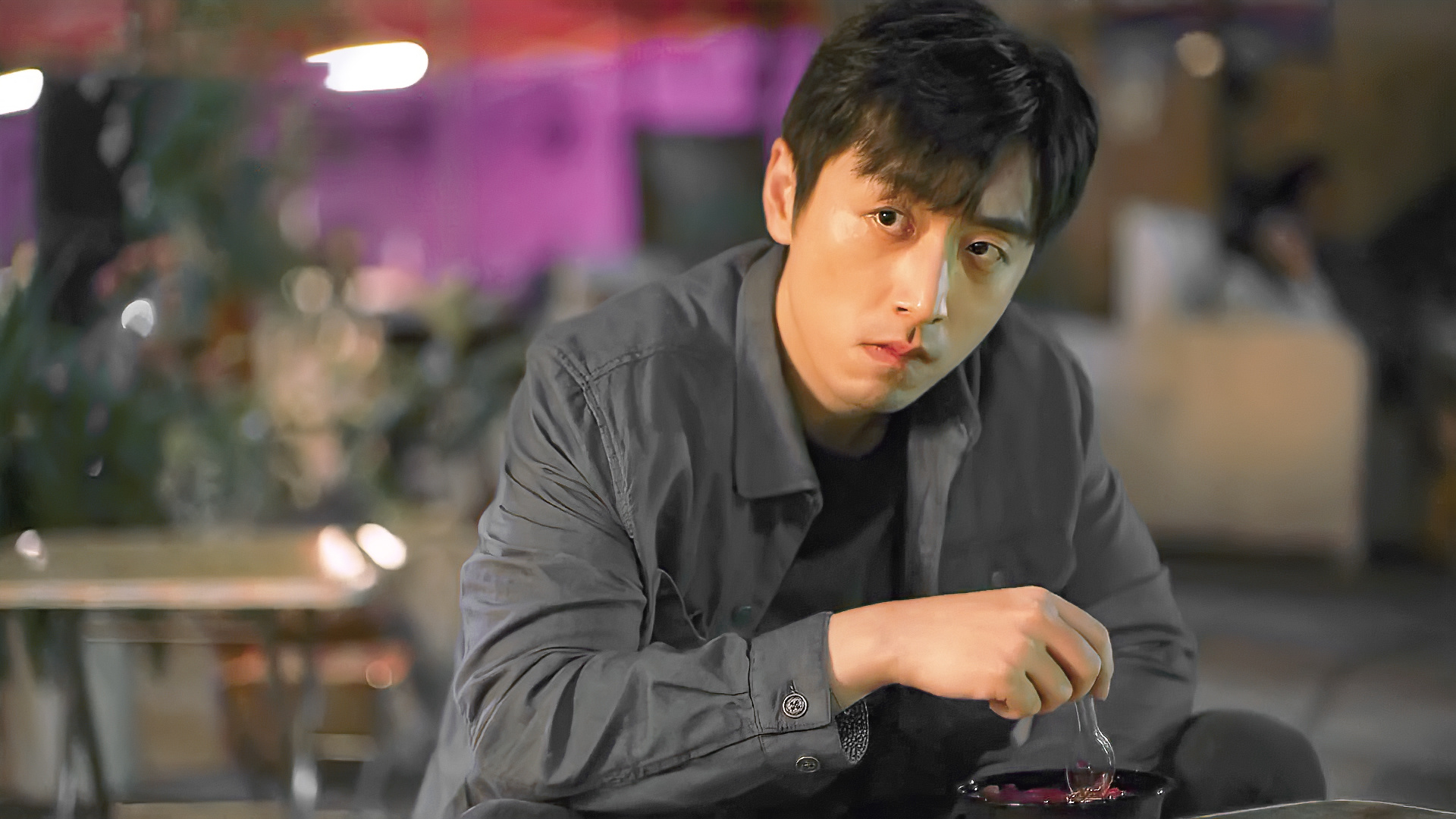
Bai Ke plays Wang Cheng in "Jiangzhao Liming"
The Paper: For some roles in recent years, everyone has noticed your acting skills. The iconic image and performance of "Wang Dahammer" in the early years is more like a "style". I am more curious whether the iconic sluggish temperament has been carefully researched or is it a certain method that did not know how to act at the time?
Bai Ke: I can't comment on "acting skills" because I don't have theoretical knowledge in my head, but I feel that the most important thing in acting is not acting skills, but matching degree. Everyone is doing one thing in the same state. For example, I have watched some Japanese dramas before, such as "Naoki Hansawa". If we interpret the audience in that way, will it be very strange? Because Japanese comics are very popular, everyone will like this kind of comic expression. We don’t have that environment, so the actor will feel that this person’s "face art" (the character’s facial expression is extremely distorted under certain circumstances) is too exaggerated , His lines are too open, and he doesn't match our performance system. So I don’t think there is any distinction between high and low acting skills. Of course, there are some who act very badly. Maybe their foundation is not solid, such as the basic sound table shape, but I don’t think acting skills can be judged by a position. "Everyone should be different. There are people of all shapes and sizes. We are not engaged in a scientific research industry, so we don't need to bring it to the same standard.
The Paper: Is the dream of football commentator still there? Would you like to try it someday?
Bai Ke: Not anymore, because I have left this job for too long, and I feel that my strength is not strong enough to support me to pick up this job.


